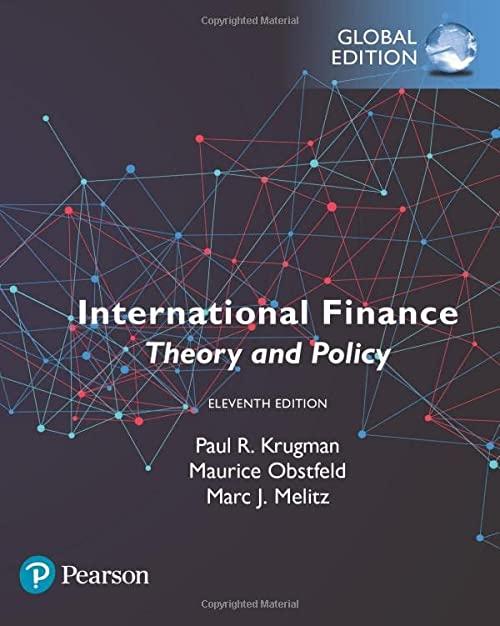7. During the speculative pressure on the EMS exchange rate mechanism (ERM) shortly before Britain allowed the
Question:
7. During the speculative pressure on the EMS exchange rate mechanism (ERM)
shortly before Britain allowed the pound to float in September 1992, The Economist, a London weekly news magazine, opined as follows:
The [British] government’s critics want lower interest rates, and think this would be possible if Britain devalued sterling, leaving the ERM if necessary. They are wrong. Quitting the ERM would soon lead to higher, not lower, interest rates, as British economic management lost the degree of credibility already won through ERM membership. Two years ago British government bonds yielded three percentage points more than German ones. Today the gap is half a point, reflecting investors’
belief that British inflation is on its way down—permanently. (See “Crisis?
What Crisis?” The Economist, August 29, 1992, p. 51.)
a. Why might the British government’s critics have thought it possible to lower interest rates after taking sterling out of the ERM? (Britain was in a deep recession at the time the article appeared.)
b. Why did The Economist think the opposite would occur soon after Britain exited the ERM?
c. In what way might ERM membership have gained credibility for British policy makers? (Britain entered the ERM in October 1990.)
d. Why would a high level of British nominal interest rates relative to German rates have suggested an expectation of high future British inflation? Can you think of other explanations?
e. Suggest two reasons why British interest rates might have been somewhat higher than German rates at the time of writing, despite the alleged “belief that British inflation is on its way down—permanently.”
Step by Step Answer:

International Finance Theory And Policy
ISBN: 9781292238739
11th Global Edition
Authors: Paul R. Krugman, Maurice Obstfeld, Marc Melitz





